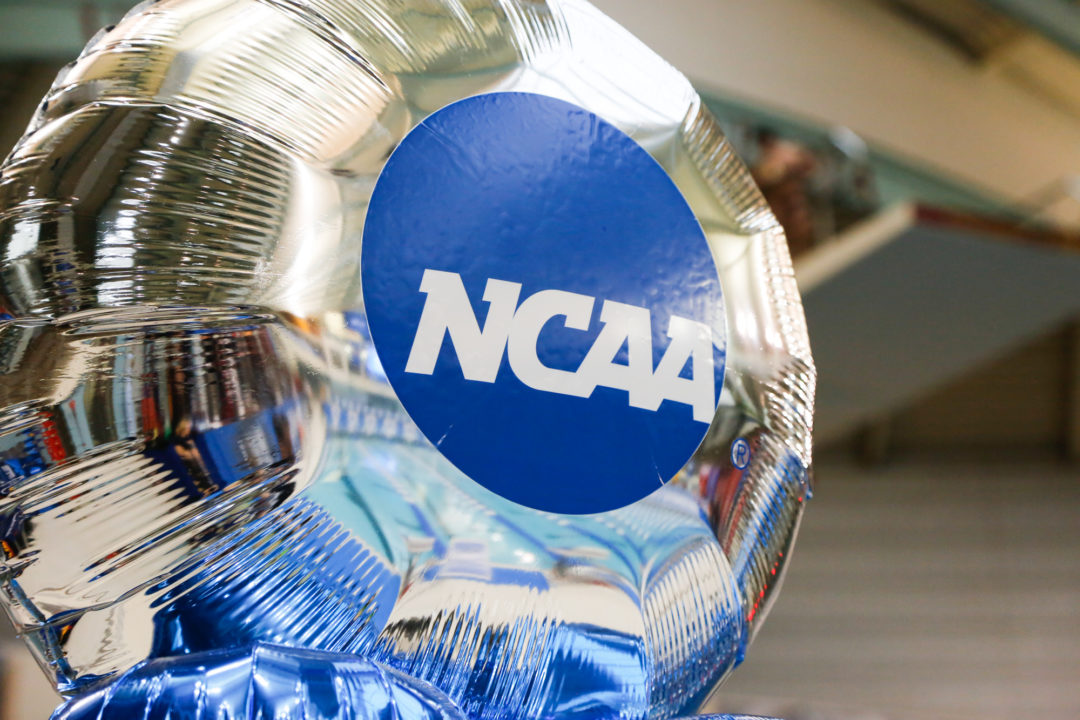At the 2020 NCAA Convention, delegates will discuss a rule change that would allow student-athletes to accept money to cover training expenses and travel for their parents.
Background
That rule change proposal is a result of the NCAA Board of Governors decision last fall to allow college athletes more freedom to earn money from their names, images, and likenesses as student-athletes. Rules restricting that money – widely abbreviated as NIL, for name, image, likeness – have come increasingly under fire in recent years. State legislatures, most notably California, forced the NCAA’s hand by discussing and occasionally passing laws that would allow student-athletes to make money from their names, images, and likenesses. Only about a month after California passed its new law, the NCAA Board of Governors voted unanimously to allow student-athlete to earn NIL money. But that decision didn’t get into specifics, saying only that athletes could earn money “in a manner consistent with the collegiate model.”
2020 NCAA Convention Topics
The NCAA’s Division I Council will delve into at least some of the specifics this week, with the Division I Name, Image and Likeness Legislative Solutions Group meeting in a closed session on Thursday, January 23. The Division I Council as a whole began its convention today in Anaheim, California.
Per the NCAA site, one proposal would allow athletes who are “designated as elite by the U.S. Olympic and Paralympic Committee and national governing bodies” to receive “developmental training expenses, including travel for parents, guardians, coaches and sport experts.”
The NCAA specifically references swimming, saying that a study found that the average college swimmer from 2013 to 2017 had “an annual financial gap of $17,000.”
Here are a few of the more swimming-adjacent rule changes that will be discussed at the convention:
- Allowing “elite” student athletes to accept money to cover training expenses and travel for parents and coaches.
- Allowing schools to provide personalized video or audio to prospects who have committed to that school in writing.
- Adding a waiver in progress-toward-degree requirements for athletes who participate in tryouts for elite world competitions. That could loosen academic restrictions on swimmers, for example, who are in the mix for spots on the Olympic team, World Champs team, or Short Course World Champs team, among other events.
- Allowing student-athletes to receive summer financial aid if they were on an athletic scholarship during the school year.
- Allowing elite athletes to have individual workout sessions with their college coaches that go above and beyond NCAA limits on required athletic participation hours, provided the athlete requests the workout and doesn’t have to miss class. This could allow college swimmers with Olympic hopes to put in more training hours, where the NCAA limits required hours to 20 per week during the college swim season.

Surprised there’s no comments on the average annual funding gap of $17k for swimming, which is probably the most interesting stat in the story. Do college coaches advertise that, nationally, the average swimmer will need to scrounge up $68k to pay for their swim career?
Another way to read this is the average swimmer pays only half what the average student does to get their degree. I hope they aren’t thinking that they are just extending their “career.”
I wouldn’t think of it that way because the opportunities aren’t necessarily equivalent. The time commitment of swimming, NCAA rules, the availability of schools that have swimming (particularly for men) vs the totality of schools out there, and their relative academic quality and reputations. Not to say that swimming doesnt have qualities that are important to people who choose to pursue that path during their college career, but it’s important for the prospective student athlete to consider the whole range of tradeoffs.
Nibbling around the edges of NIL vs addressing the issue head on. If anyone thinks the NCAA will do anything but delay, hold out and offer paltry solutions to this issue until being 100% forced by states passing their own laws, etc, they would be sadly mistaken.
Will the NCAA define who is an “elite” athlete? For swimming and Olympic sports seems like it’s an easy workaround for programs to go far beyond the 20hr limit if not.
How about being a member of the sport’s national team? While it might leave out some who are reasonable contenders for the Olympic team, it’s a fairly objective measure.
Part of the challenge will be making rules that are universally applicable. What we saw with some of these exception rules is that foreign countries were able to give vastly different awards than the U.S. was, as was the case with Schooling for example, imbalanced. I think you’d want to create a system that could be exported around the world equitably (and maybe this doesn’t look identical for all sports, but an attempt could be made to make it approximately equal). The U.S. National Team structure is fairly straight forward and consistent. But in other countries, it’s not. You’d have to create a system where you’re giving advantages to international athletes – while I’m all for bringing international athletes into… Read more »
Your first paragraph is already happening (and in some cases, being abused as loopholes in NCAA rules).